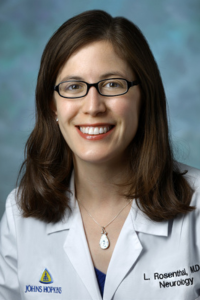The 2025 Annual Ataxia Conference is in Las Vegas! Will you join us in March? LEARN MORE!
To better understand the factors that determine disease progression among Cerebellar Ataxia with the goal of improving the understanding of the disease process, current treatments, and development of disease-modifying therapies
Learn more about how you can get involved in the CRC-SCA Natural History Study.
General information for researchers working with Ataxia.
Introductory information for industry partners that are exploring Ataxia therapies.
A natural history study collects data that shows how a specific disease progresses in individuals over time. Natural history studies are essential for developing clinical trial designs that will facilitate drug development. You may also hear the terms ‘observational study’ or ‘observational clinical trial’ used to describe a natural history study.
The natural history of the SCAs and factors that may modify them are not completely understood. There is a need to define natural history in geographically distinct areas and develop additional methods to document progression that may be more sensitive and reliable. There is also limited knowledge of factors that may modify symptoms of SCA.
The CRC-SCA natural history study and biomarker development is growing and adapting during this exciting new era in ataxia research as pharmaceuticals are advancing to therapy development for the ataxias. CRC-SCA plans to add specific clinical end-point assessments and biospecimen collection. This will increase the strength of this study allowing the consortium to partner with stakeholders in a meaningful way that will include patients as research collaborators.
The Clinical Research Consortium for the Study of Cerebellar Ataxia (CRC-SCA) includes participants with a confirmed diagnosis of SCA 1, 2, 3, 6, 7, 8, 10, 27B, or RFC1 Ataxia/CANVAS. We are currently recruiting individuals in the United States and Canada with SCA27B or RFC1 Ataxia/CANVAS to participate in this study. Recruitment of individuals with other forms of ataxia is currently paused.
You can use our new CRC-SCA Eligibility Screening Tool to confirm you are eligible to participate in this natural history study.
Contact the research coordinator at a site near you to register to participate in the CRC-SCA.

Liana Rosenthal, MD, PhD
Johns Hopkins University,
Baltimore, MD

Vikram Shakkottai, MD, PhD
University of Texas,
Southwestern Medical Center
Dallas, TX

Sheng-Han Kuo, MD
Columbia University,
New York City, NY
Dr. Sheng Han Kuo
Lead Coordinator:
Nadia Amokrane
Na2855@cumc.columbia.edu
Dr. George “Chip” Wilmot
Lead Coordinator:
Emilee Wehunt
emorga9@emory.edu
Dr. Andrew Billnitzer
Lead Coordinator:
Nijah Russell
nrussell@houstonmethodist.org
Dr. Liana Rosenthal
Lead Coordinator:
Vanessa Johnson
vjohns23@jhmi.edu
Drs. Jeremy Schmahmann and Anoopum Gupta
Lead Coordinator:
Jason MacMore
jmacmore@mgh.harvard.edu
Drs. Puneet Opal and Rizwan Akhtar
Lead Coordinator:
Molly Ann Flynn
molly.flynn@northwestern.edu
Dr. Susan Perlman
Lead Coordinator:
Westley Ulit
wulit@mednet.ucla.edu
Drs. Cameron Dietiker and Michael Geschwind
Lead Coordinator:
Chelsea Chen
Chelsea.Chen@ucsf.edu
Dr. Christopher Gomez
Lead Coordinator:
Hannah Casey
hannahcasey@uchicago.edu
Drs. SH Subramony and Matthew Burns
Lead Coordinator:
Jennifer Argudo
jennifer.argudo@neurology.ufl.edu
Drs. Henry Paulson and Sharan Srinivasan
Lead Coordinator:
Frank Ferrari
frankfer@med.umich.edu
Dr. Ali Hamedani
Lead Coordinator:
Anne Beckett-Fedarko
anne.beckett-fedarko@pennmedicine.upenn.edu
Dr. Theresa Zesiewicz
Lead Coordinator:
Julia Tenorio-Ibanez
juliatenorio@usf.edu
Dr. Vikram Shakkottai
Lead Coordinator:
Sharon Primeaux
sharon.primeaux@utsouthwestern.edu
Dr. Marie Davis
Lead Coordinator:
Sarah Simon
ssimon3@uw.edu
Montréal, Québec, Canada
Dr. Antoine Duquette
Lead Coordinator:
Martine Comeau
martine.comeau.chum@ssss.gouv.qc.ca
The CRC-SCA is supported by funding from: the Gordon and Marilyn Macklin Foundation, NAF, NAF’s Drug Development Collaborative, Columbia University, and Ataxia Canada. NAF extends its appreciation to these partners for providing financial support for the Natural History Study. This clinical research collects the essential data needed to provide our industry partners information about disease progression which guides them as they work to develop treatments and design clinical trials. This effort is paramount to make the necessary advancements in pursuit of a treatment for Ataxia and, ultimately, a cure.
No funds provided by the National Ataxia Foundation may be used for indirect/F&A costs.
Our generous donors help us fund promising Ataxia research and offer support services to people with Ataxia. Your gift today will help us continue to deliver on our mission to improve the lives of persons affected by Ataxia.
Join for FREE today! Become a part of the community that is working together to find a cure. As a member you will receive access to the latest Ataxia news with our e-newsletter and Generations publication.
